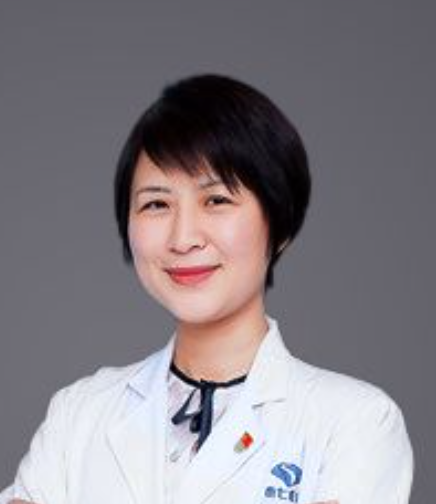Dr. Li Xiaohua(Meet up with best Endocrinologist in Shanghai)

Li Xiaohua
Director of Endocrinology Department, Shanghai Seventh People’s Hospital
Chief Physician, Professor, Doctoral Supervisor
Honors & Titles:
High-Level TCM Talent of Shanghai
Leading Talent of Pudong New District
Outstanding Resident Training Mentor of Shanghai
Nominee for “Beloved Teacher” Award, Shanghai University of Traditional Chinese Medicine
Professional Affiliations:
Committee Member, Diabetes Branch, Chinese Association of Traditional Chinese Medicine
National Committee Member, China Endocrine and Metabolic Diseases Specialist Alliance
Vice Chair, Diabetes Branch, Shanghai Association of Traditional Chinese Medicine
Committee Member, Diabetes Specialty Branch, Shanghai Medical Association
Standing Committee Member, Endocrinology Committee, Shanghai Association of Integrative Medicine
Standing Committee Member, Diabetes and Complications Committee, Shanghai Association of Integrative Medicine
Committee Member, Resident Physician Standardized Training Branch, Shanghai Association of Traditional Chinese Medicine
Chair, Integrative Medicine Committee of Pudong New District
Research & Achievements:
Led 14 national, municipal, and district-level research projects
Published over 50 academic papers
Holds 1 national invention patent and 4 utility model patents
First Principal Investigator for:
Third Prize, Scientific Progress Award, China Association for Promotion of TCM Research
Third Prize, Shanghai Integrative Medicine Science and Technology Award
Yewen Renyi Interviewed with Dr. Li Xiaohua in 2025:
Yewen Renyi: Dr. Li, why do you emphasize the importance of TCM (Traditional Chinese Medicine) thinking in clinical practice?
Li Xiaohua: When communicating with patients, using TCM terminology and frameworks can significantly enhance their understanding. Concepts like TCM’s holistic view, dialectical perspective, and balance-oriented philosophy are crucial. Western medicine often relies heavily on lab tests and targeted treatments, while TCM evaluates patients by observing systemic symptoms, tongue signs, and pulse patterns. Modern Western medicine has become highly specialized—even down to the cellular level—but this precision sometimes overlooks interconnectedness. Integrating TCM’s holistic mindset with Western technology is essential. Medical specialization has fragmented clinical practice, limiting cross-disciplinary integration. TCM thinking helps clinicians grasp diseases comprehensively. As doctors, our approach to problem-solving is vital—this is where the synergy of TCM and Western medicine shines. No matter how advanced technology becomes, mindset remains foundational.
Yewen Renyi: How did your endocrinology department evolve into a specialty integrating TCM and Western medicine? What was pivotal in this transformation?
Li Xiaohua: Serendipity played a role! Early on, we naturally incorporated TCM terms to explain conditions, which subtly laid the groundwork. Initially, we didn’t explicitly focus on integration, but over time, we saw its benefits: reduced patient costs and improved outcomes. For example, TCM methods often achieve comparable results to Western treatments at lower expenses. Flexibility is key—there’s no rigid formula like “50% TCM + 50% Western.” Even a 10% TCM component can optimize care. Our goal isn’t ideological adherence but patient-centered efficacy.
Yewen Renyi: How do you apply TCM’s concept of “harmony between humans and nature” (tian ren he yi) clinically?
Li Xiaohua: This principle is tangible in managing metabolic disorders like diabetes and obesity. Many patients deviate from natural rhythms—unbalanced lifestyles root their ailments. TCM emphasizes equilibrium: disease isn’t just physical but intertwined with psychological strain. Medications impose mental burdens, and resistance to aging reflects a disconnect from natural cycles. I often reference the Yellow Emperor’s Canon—its wisdom aligns with modern lifecycle health management. Ancient TCM insights, paired with modern tools, create invaluable synergy.
Yewen Renyi: Beyond work, how do you balance life and career?
Li Xiaohua: Music and classical poetry recharge me. I delve into humanities, philosophy, and history—these classics offer timeless wisdom and spiritual nourishment. On weekends, I enjoy podcasts and interviews that spark reflection. Carving out time for biographies or philosophical texts helps me find purpose. This engagement with tradition isn’t just a hobby; it’s a bridge to meaning.
Origin: https://www.shanghaidoctor.cn/engouji/232.html
Email: DocinChina@126.com

